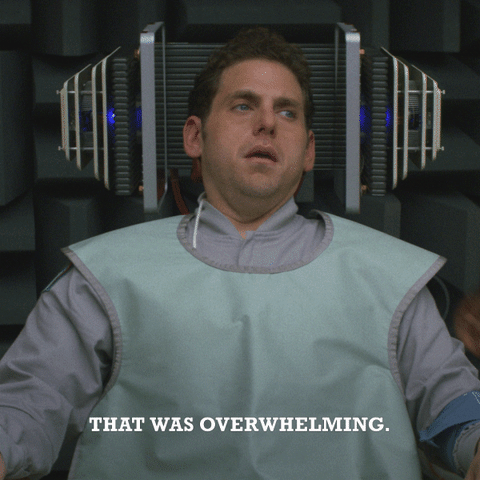Trusting Your Team
Dani Tornow
A Software Engineer & Human Being
Why is Teamwork important?
- Most work is done in teams.
- A company is usually comprised of many individuals.
- A business is rarely successful because of a single person.

Project Aristotle
Google wanted to find out what made the best teams, so they did a study: "Project Aristotle".
Google could hire great people, great technical skills, but teams still failed.
Why?
They decided to find out.

Aristocrat, the Greek Philosopher
Project Aristotle - What is a team?
"Teams are highly interdependent - they plan work, solve problems, make decisions, and review progress in service of a specific project. Team members need one another to get work done."
Project Aristotle - The Findings
Thankfully, Project Aristole is helping us answer that question today.
"The researchers found that what really mattered was less about who is on the team, and more about how the team worked together."
What mattered most? TRUST.
How do you "build" trust?
It sounds easy but it really isn't. Different people, different backgrounds, all lead to better success. [1]
"Striving to increase workplace diversity is not an empty slogan — it is a good business decision. ...In recent years a body of research has revealed another, more nuanced benefit of workplace diversity: nonhomogenous teams are simply smarter. Working with people who are different from you may challenge your brain to overcome its stale ways of thinking and sharpen its performance."
Listen First
"To build trust, you must respect how others think and feel. That's why it's important to listen first.
When you regularly and skillfully listen to others, you stay in touch with their reality, get to know their world and show you value their experience. Active listening involves asking questions, along with concentrated effort to understand your partner's answers--all while resisting the urge to judge. Careful listening helps you identify each individual team member's strengths, weaknesses, and style of communication."
Show Empathy
"Try your best to understand your fellow team members and their perspectives. This is called cognitive empathy.
But you'll also benefit from showing affective, or emotional empathy. This means attempting to share the feelings of another.
For example, if a colleague shares a struggle, you may think: "Well, that's not such a big deal. I've dealt with that before." When this happens, try to think of a time when you felt stressed or overwhelmed, and draw on that feeling to help you relate."
Be authentic
"Authenticity creates trust. We're drawn to those who "keep it real," who realize that they aren't perfect, but are willing to show those imperfections because they know everyone else has them, too.
Authenticity doesn't mean sharing everything about yourself, to everyone, all of the time. It does mean saying what you mean, meaning what you say, and sticking to your values and principles above all else."
Set the Example
"Words can build trust only if they are backed up by actions.
That's why it's so important to practice what you preach and set the example: You can preach respect and integrity all you want; it won't mean a thing when you curse out a member of your team."
Be Helpful
"One of the quickest ways to gain someone's trust is to help that person.
Think about your favorite boss. What school he or she graduated from, with what kind of degree, and this person's previous accomplishments--none of these details are relevant to your relationship. But how about when this boss was willing to take time out of their busy schedule to listen, help out, or get down in the trenches and work alongside you?
Trust is about the long game. Help wherever and whenever you can."
Be Humble
"Being humble doesn't mean that you never stand up for your own opinions or principles. Rather, it means recognizing that you don't know everything--and that you're willing to learn from others.
It also means being willing to say those two most difficult words when needed: I'm sorry."
Be Transparent
"There's nothing worse than the feeling that leaders don't care about keeping you in the loop, or even worse, that they're keeping secrets.
Make sure your vision, intentions, and methods are clear to everyone on your team--and that they have access to the information they need to do their best work."
Commend Sincerely and Specifically
"When you commend and praise others, you satisfy a basic human need. As your colleagues notice that you appreciate their efforts, they're naturally motivated to do more. The more specific, the better: Tell them what you appreciate, and why.
And remember, everyone deserves commendation for something. By learning to identify, recognize, and praise those talents, you bring out the best in them."
What Project Aristotle Did Not Find...
The researchers also discovered which variables were not significantly connected with team effectiveness:
- Co-location of teammates (sitting together in the same office)
- Consensus-driven decision making
- Extroversion of team members
- Individual performance of team members
- Workload size
- Seniority
- Team size
- Tenure
That seems like a lot...

Everything good takes time
- Imagine, as you look to the next team, if you believe they would listen to your most absurd idea
- Consider your teammates as much as you consider your job responsibilities
- Seek diverse opportunities, if only because it'll make you smarter! (there are other benefits too)
About Me
- Senior Software Engineer at Sitka - dani@trustsitka.om [https://www.trustsitka.com/]
- Been an Engineer in Sioux Falls for 10+ years
- Passionate about cool technology and furthering the human condition
- I like to talk about Cloud Computing, Microservices, and if unicorns eat donuts.

Sources
- https://www.inc.com/justin-bariso/google-spent-years-studying-effective-teams-this-single-quality-contributed-most-to-their-success.html
- https://rework.withgoogle.com/print/guides/5721312655835136/
- https://www.nytimes.com/2016/02/28/magazine/what-google-learned-from-its-quest-to-build-the-perfect-team.html
- https://hbr.org/2016/11/why-diverse-teams-are-smarter
These Slides:
https://slides.com/
danitornow/trust-your-team
The End!

Trusting Your Team
By Danielle Tornow
Trusting Your Team
Most people like to work in a team. Even better, most people like to work on a functional team.
- 127



